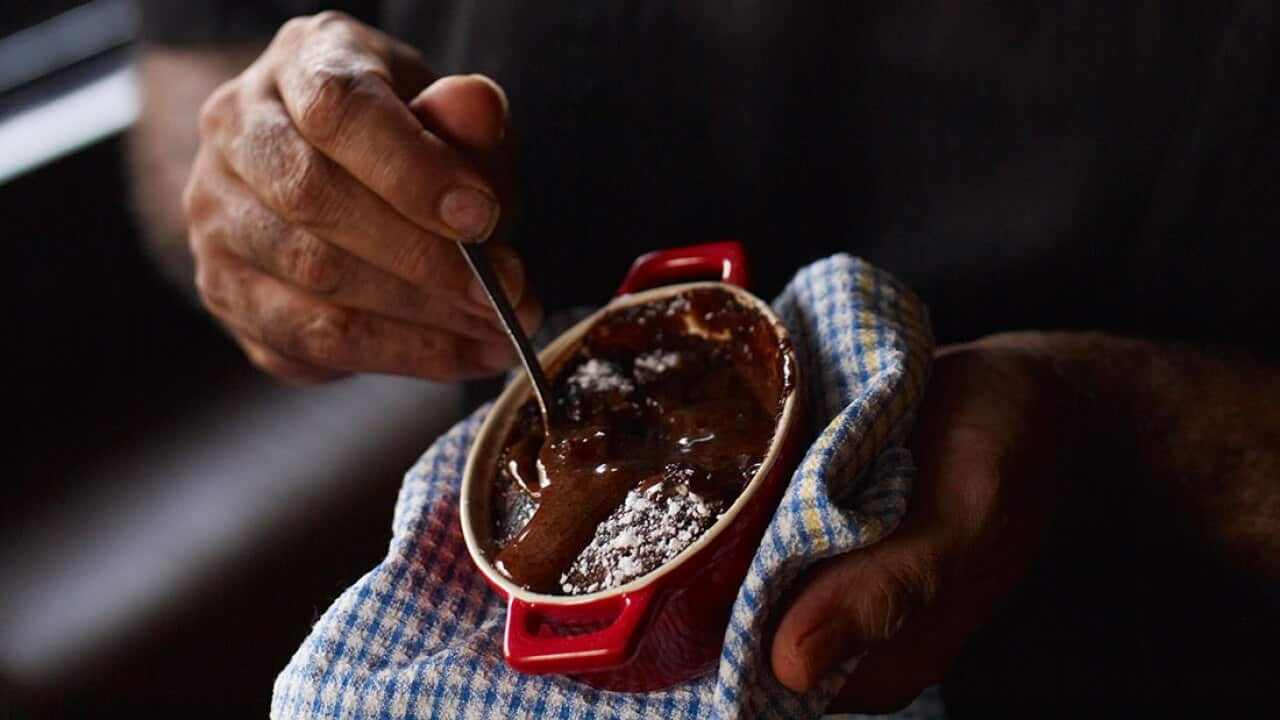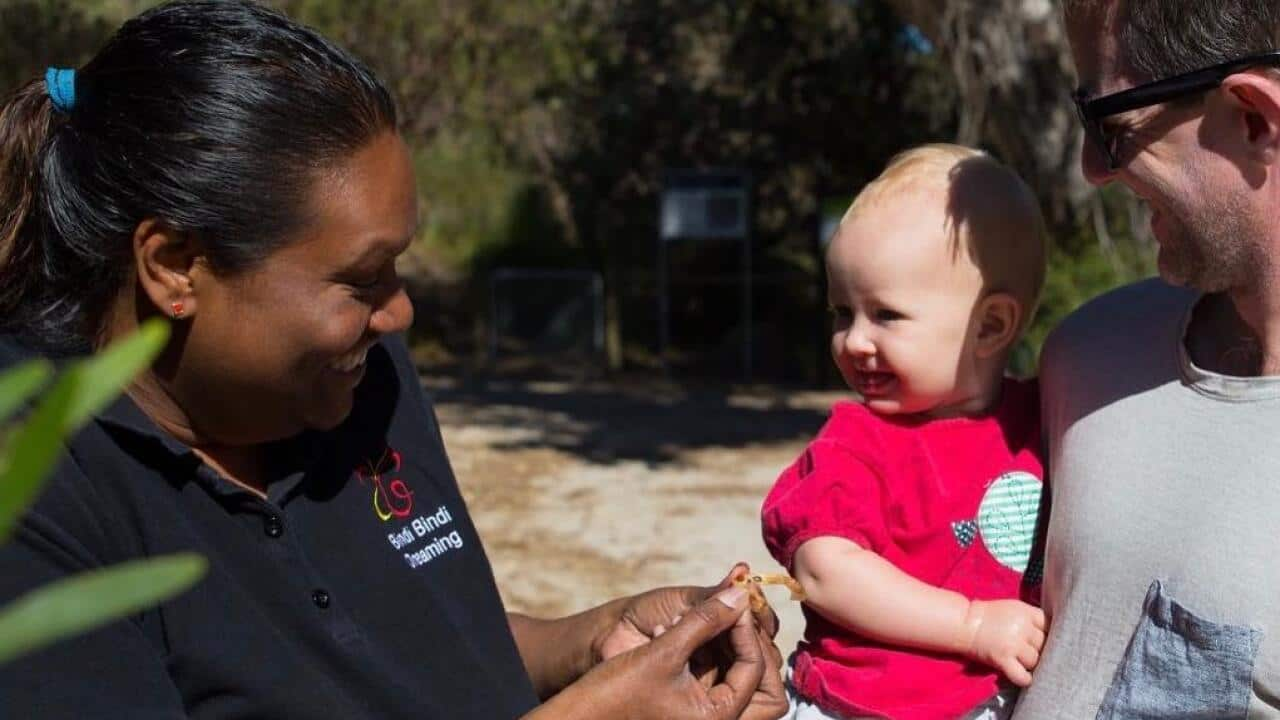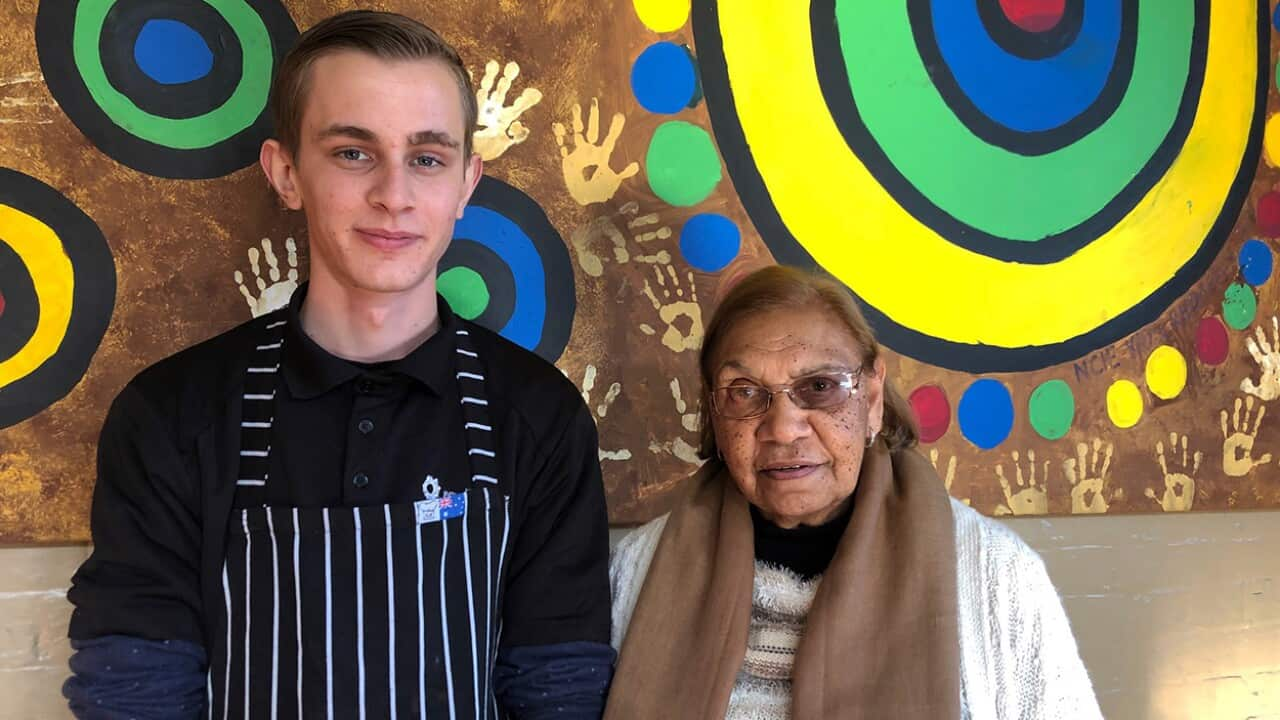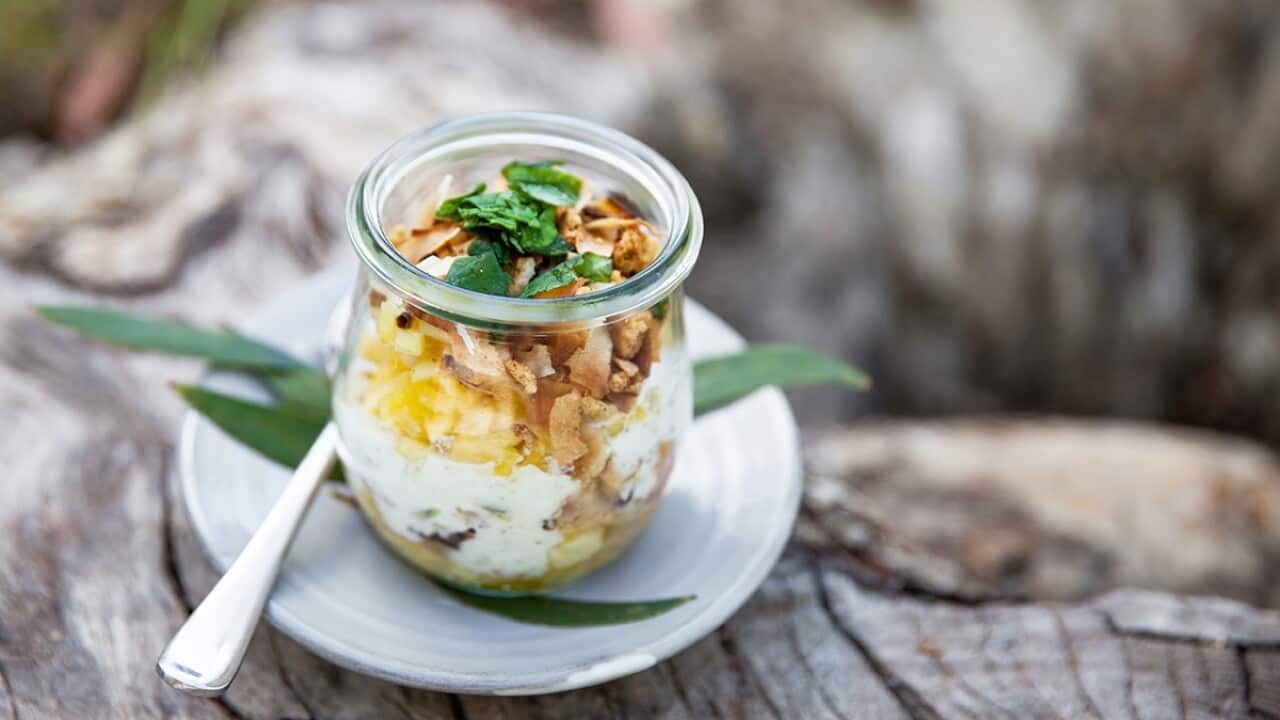Growing up on the NSW South Coast, Yuin man Dominic Smith always had a love of nature and growing things. "I definitely inherited my maternal grandmother's green thumb," he says. He was drawn to do a certificate in conservation and land management, but it was the short course in aquaponics that really held his interest.
"As the course progressed, it became clear that I had a natural affiliation for aquaponics," says Dominic. "The business just snowballed from there."

The aquaponics system at Pundi Produce brings new meaning to the term 'fast food'. Source: Supplied
Organically grown native products
'Snowballed' is an apt way to describe the growth of . With help from and , Dominic started his business in 2014 with a vision to organically grow native products and fruit and vegetables in a sustainable way. The seven-hectare farm produces seasonal herbs and vegetables, along with natives like Warrigal greens, rivermint, saltbush, sea parsley, sea celery and wattleseed.
Farmed fish supply the nutrients needed for plants to grow hydroponically.
Everything is grown organically, using an aquaponics system. Farmed fish supply the nutrients needed for plants to grow hydroponically. Aquaponics uses less water, land and labour than traditional agriculture. Dominic says the aquaponics system works so well that he doesn’t need to use chemical fertilisers, pesticides or insecticides. It's a system he calls "nature in a box".
Good nature in a box
His own good nature is something worth boxing as well. Not only does Pundi Produce produce clean produce and natives using minimal resources, but the farm also provides fish for locals and aims to give troubled youth in the community a fair go. "We have achieved enough growth in the business to employee one Aboriginal employee," says Dominic. "We are on our way to increase the employment opportunities for more."
"We have achieved enough growth in the business to employee one Aboriginal employee," says Dominic. "We are on our way to increase the employment opportunities for more."

Pundi Produce hopes to quickly expand to keep up with the demand for Australian native foods. Source: Supplied
Pundi Produce is also developing a work experience program to teach young Aboriginal people wanting to start their own aquaponics farm. Dominic was helped immensely by The Outback Spirit Foundation and Nunga Produce when he was starting out, with both supplying a wealth of information about the native food market and helping Dominic upgrade and expand his farm.
His own good nature is something worth boxing as well.
The Wattle Project
The Outback Spirit Foundation is backing Pundi Produce via . The foundation’s Executive Director, Chris Mara, says Dominic has the agricultural and business skills, as well as the tireless work ethic and vision to continue growing Pundi Produce. The project has been a "huge contributor" in the growth of the business, allowing Dominic to connect with buyers in the market and acquire infrastructure to process the native ingredients.
The support he received is something he wants to give back and he sees plenty of affinity between growing native produce and offering education to Aboriginal youth.
"Of course, Indigenous Australians have long known the medicinal values of our native produce and still use these items in both medicinal and ceremonial situations," he says.

Roasted ground wattleseed is highly-nutritious and can be used for baking, as a thickener, and making ice cream. Source: Getty Images
Fad favourite to staple
Something the rest of Australia, and the world are quickly catching on to. "There is a huge demand for native foods," he says. "They are quickly becoming a fad favourite and will eventually become a standard pantry item." He attributes the growth in awareness and demand in the past decade to celebrity chefs using the versatile flavours in their cooking.
They are quickly becoming a fad favourite and will eventually become a standard pantry item.
Given his training in aquaponics, it's no surprise that Dominic was also drawn to the overall sustainability of the native food industry. He has planted over two hectares of natives on his property in the South Australian Riverland region, with plans to expand as quickly as possible.
"Natives are better for reducing soil salinity, far more drought tolerant and financially more affordable in regards to expenditure," he says. "Natives also produce fruit in a far quicker time-frame and due to their tolerant nature, are much more durable and environmentally hardy."

The Riverland region is known for stonefruits and citrus and Dominic plans for wattleseed to join the list. Source: Dominic Smith
A huge difference to small farmers
Achieving an eco-friendly, sustainable business is one thing, keeping it going is quite another. The biggest hurdle Pundi Produce faces is convincing the consumer that paying a bit more for quality and service is entirely worth it. As is shopping with smaller retailers and farmers.
"A purchase might not make a difference to a larger company, but it might make a huge difference to small farmers like me," he says.
With Pundi Produce putting community and environmental wellbeing at the top of its priority list, making a huge difference is just a matter of time.











